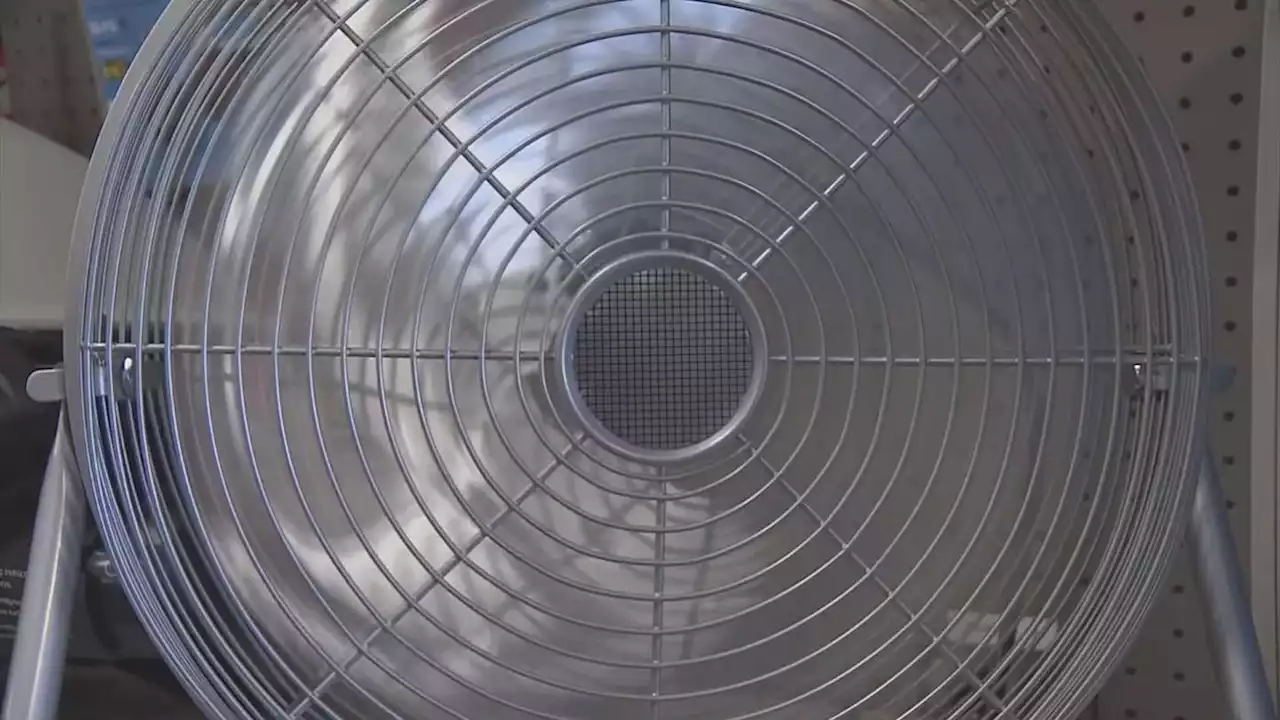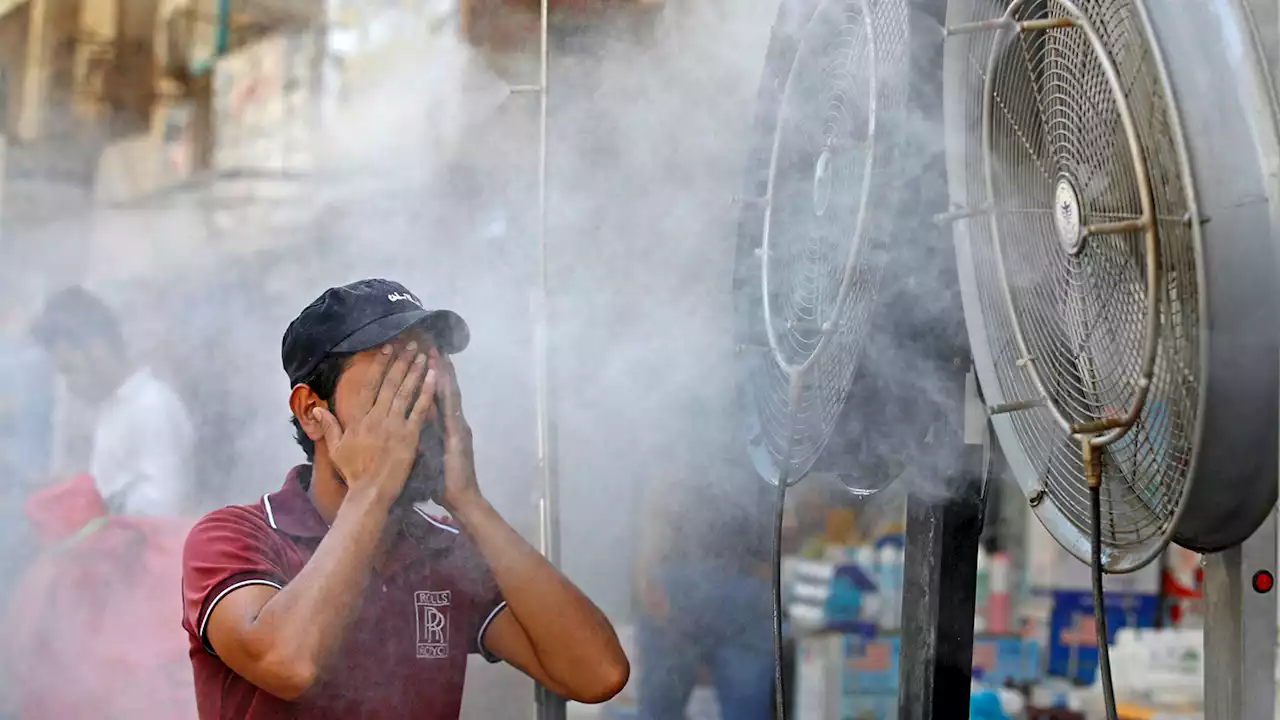If true, millions more people could be at risk of dangerous temperatures sooner than expected.
The heat already is taking an increasing toll on human health. It can cause heat cramps, heat exhaustion and heat stroke, which is often fatal. Dehydration can lead to kidney and heart disease. Extreme heatOn July 13, multiple heat waves seared much of Europe, Asia and North Africa, smashing temperature records. China’s Shanghai Xujiahui Observatory recorded its highest-ever temperature of 40.9° C in almost 150 years of record-keeping. Tunis, Tunisia, reached a 40-year record of 48° C.
When water evaporates from the skin or another surface, it steals away energy in the form of heat, briefly cooling that surface. That means that in drier regions, the wet bulb temperature — where that ephemeral cooling effect happens readily — will be lower than the actual air temperature. In humid regions, however, wet and dry bulb temperatures are similar, because the air is so moist it’s difficult for sweat to evaporate quickly.
Still, for the last decade, that theoretical wet bulb 35° C number has been considered to be the point beyond which humans can no longer regulate their bodies’ temperatures. But recent laboratory-based research by Vecellio and his colleagues suggests that a general, real-world threshold for human heat stress is much lower, even for young and healthy adults.
In warm and humid conditions, the subjects in the study were unable to tolerate heat stress at wet bulb temperatures closer to 30° or 31° C, the team estimates. In hot and dry conditions,. For context, in a very dry environment at about 10 percent humidity, a wet bulb temperature of 25° C would correspond to an air temperature of about 50° C .
A worker wipes away sweat in Toulouse, France, on July 13. An intense heat wave swept across Europe in mid-July, engulfing Spain, Portugal, France, England and other countries.If the human body’s tolerance for heat stress is generally lower than scientists have realized, that could mean millions more people will be at risk from the deadliest heat sooner than scientists have realized.
One of those considerations is the ability of the body to quickly acclimate to a temperature extreme. Regions that aren’t used to extreme heat may experience greater mortality, even at lower temperatures, simply because people there aren’t used to the heat. The
United States Latest News, United States Headlines
Similar News:You can also read news stories similar to this one that we have collected from other news sources.
 'Westworld' Season 4 Is Taking Humans vs. Hosts to a New LevelSeason 4 of Westworld has once again begun pushing the boundaries on the philosophical debate that has been this show’s core since the beginning.
'Westworld' Season 4 Is Taking Humans vs. Hosts to a New LevelSeason 4 of Westworld has once again begun pushing the boundaries on the philosophical debate that has been this show’s core since the beginning.
Read more »
 Scientist Says That Humans Are Almost Certainly Going Extinct'Lack of genetic variation is never good for species survival.'
Scientist Says That Humans Are Almost Certainly Going Extinct'Lack of genetic variation is never good for species survival.'
Read more »
 Humans Could Definitely Live to 130, Scientists SayIf you're already 110, the chances of living until 130 are 'about one in a million.'
Humans Could Definitely Live to 130, Scientists SayIf you're already 110, the chances of living until 130 are 'about one in a million.'
Read more »
 This small crocodile's giant ancestors likely preyed on early humansAccording to a recent study, the crocs roamed Africa 18 to 15 million years ago. They were at least twice as large as modern dwarf crocodiles.
This small crocodile's giant ancestors likely preyed on early humansAccording to a recent study, the crocs roamed Africa 18 to 15 million years ago. They were at least twice as large as modern dwarf crocodiles.
Read more »
 How Will Humans Survive an Apocalypse? A New Study Has an AnswerA study of Western Australia and China during the COVID-19 epidemic suggests that one possibility is to establish a safe refuge. Establishing a safe refuge - on an island or in such remote locations like the moon or underwater - where a portion of the human population can remain alive has been prop
How Will Humans Survive an Apocalypse? A New Study Has an AnswerA study of Western Australia and China during the COVID-19 epidemic suggests that one possibility is to establish a safe refuge. Establishing a safe refuge - on an island or in such remote locations like the moon or underwater - where a portion of the human population can remain alive has been prop
Read more »
 How to stay cool if you don’t have AC or can’t open windowsIf you're not able to open your windows or don't have air conditioning, here's some ways to lower the heat inside your home and keep your body cool.
How to stay cool if you don’t have AC or can’t open windowsIf you're not able to open your windows or don't have air conditioning, here's some ways to lower the heat inside your home and keep your body cool.
Read more »
